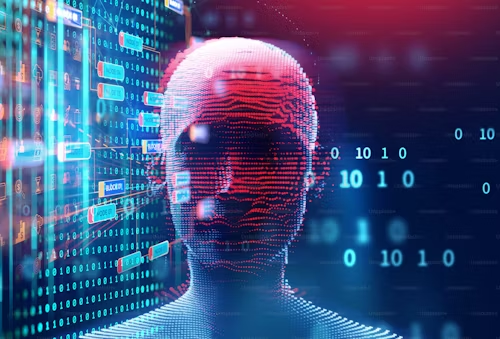Algorithmic Ethics: Defining AI’s Moral Compass

To begin with, the rapid evolution of artificial intelligence (AI) has brought unprecedented opportunities and challenges to our society. From healthcare and finance to transportation and entertainment, AI systems are becoming integral to our daily lives. However, this transformative technology raises critical ethical questions: how do we define right and wrong in artificial intelligence? This article explores algorithmic ethics and the frameworks shaping ethical AI development.
What is Algorithmic Ethics?

Algorithmic ethics, a key concept in the ethical development of AI, refers to the study and application of moral principles in the design, deployment, and governance of AI systems. It focuses on ensuring that AI technologies align with human values, fairness, and justice. As AI increasingly influences decision-making processes, the ethical implications of these algorithms cannot be ignored.
Key Ethical Challenges in AI
- Bias and Fairness
AI systems often learn from historical data, which may reflect societal biases. These biases can lead to discriminatory outcomes in areas like hiring, lending, and law enforcement. To explore this further, read more about addressing bias in AI at Fairness in Machine Learning. systems often learn from historical data, which may reflect societal biases. These biases can lead to discriminatory outcomes in areas like hiring, lending, and law enforcement. Ensuring fairness requires diverse datasets and ongoing audits to identify and mitigate biases. - Accountability. When AI systems make decisions, who is responsible for the outcomes? Establishing accountability is crucial, especially in high-stakes scenarios like medical diagnoses or autonomous vehicles. Developers, companies, and policymakers must work together to clarify responsibility.
- Privacy Concerns. AI systems often rely on vast amounts of personal data. This raises questions about data privacy and security. Ethical AI practices must prioritize user consent, transparency, and robust data protection measures.
- Transparency. Many AI models, particularly deep learning algorithms, are often described as “black boxes” due to their complexity. Lack of transparency can lead to mistrust and misuse. Ethical AI development should focus on explainability, making it easier to understand how decisions are made.
- Autonomy and Control. As AI becomes more autonomous, there is a growing concern about losing control over these systems. Ethical guidelines should ensure that AI remains a tool to augment human capabilities rather than replace or undermine them.
Frameworks for Ethical AI
- The IEEE Global Initiative on Ethics of Autonomous and Intelligent Systems.
Learn more about this framework here, which provides comprehensive guidelines for ethical AI development, emphasizing transparency, accountability, and societal well-being. This framework provides comprehensive guidelines for ethical AI development, emphasizing transparency, accountability, and societal well-being. - The European Commission’s Ethics Guidelines for Trustworthy AI. These guidelines outline principles like human agency, fairness, and environmental sustainability to ensure AI serves humanity.
- The Asilomar AI Principles. Created by AI researchers and thought leaders, these principles address long-term ethical challenges, including value alignment and existential risks.
Building a Future with Ethical AI
To create AI systems that align with societal values, a multidisciplinary approach is essential. Here are some actionable steps.
- Incorporate Ethics in AI Education. Developers and engineers should receive training in ethical principles to design responsible AI systems.
- Engage Diverse Stakeholders. Including voices from various backgrounds ensures that AI systems address a broader range of ethical concerns.
- Establish Regulatory Frameworks. Governments and international organizations must create and enforce regulations to guide ethical AI development.
- Promote Public Awareness. Educating the public about AI ethics fosters informed discussions and accountability. To learn more, visit trusted resources like the AI Ethics Hub for insights and tools to navigate these challenges.
Conclusion
In conclusion, defining right and wrong in artificial intelligence is a complex but vital endeavor. Algorithmic ethics provides a roadmap for addressing the moral challenges posed by AI, ensuring it serves humanity equitably and responsibly. Ultimately, by prioritizing fairness, accountability, and transparency, we can harness the power of AI while safeguarding our values and principles.



